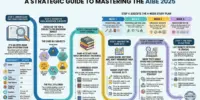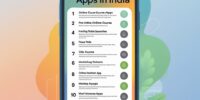
Top 25 Soft Skills Employers Are Looking For in 2025 (Ultimate Guide)
👋 Hey ambitious professionals and job seekers!
Whether you’re a fresh graduate, freelancer, or seasoned employee, one truth is clear in 2025: soft skills are now the real currency of career success.
According to LinkedIn’s 2025 Workplace Insights Report, 92% of recruiters consider soft skills as important—or even more important—than hard skills when hiring.
With AI automating technical tasks and workplaces going hybrid, human qualities like communication, empathy, and adaptability are in the spotlight.
This article is your comprehensive guide to the top 25 soft skills employers want in 2025.
Why they matter, how to improve them, and real-life examples of how they show up at work.
By the end, you’ll not only know what employers are searching for—you’ll also know how to stand out in interviews and grow in your career.
💡 What Are Soft Skills?
Soft skills are non-technical skills that influence how you work, communicate, and interact with others.
Unlike hard skills (such as coding, accounting, or engineering), soft skills are transferable—they apply across industries, roles, and even cultures.
Think of them as your personal toolkit for thriving in the workplace.
📌 Examples of soft skills:
- Communication
- Teamwork
- Leadership
- Problem-solving
- Creativity
- Emotional Intelligence
💬 In short: hard skills may get you hired, but soft skills keep you employed and help you grow.
The Skills You Need for a Game-Changing Career
🚀 Why Soft Skills Are Essential in 2025
The job market has shifted dramatically in just a few years. Here’s why soft skills are more important than ever:
- 🌍 Globalized teams → Collaboration across borders requires clear communication and cultural awareness.
- 🤖 AI & automation → Robots can analyze data, but they can’t empathize, lead, or resolve conflict.
- 💼 Remote/hybrid work → Self-motivation and accountability are now must-have qualities.
- 📈 Leadership evolution → Today’s managers are expected to coach, inspire, and support—not just supervise.
✅ Bottom line: Employers want professionals who combine technical know-how with human-centered skills.
📋 Top 25 Soft Skills Employers Are Looking For in 2025

Here’s the ultimate list of the most in-demand soft skills in 2025, with explanations and examples.
1. Communication
The #1 skill across all industries. Clear communication—both written and verbal—prevents misunderstandings, builds trust, and ensures smooth teamwork.
2. Teamwork
Collaboration is the backbone of innovation. Employers look for people who can contribute, listen, and support team success.
3. Adaptability
Change is constant in 2025. Adaptable employees embrace new tools, industries, and challenges without resistance.
4. Emotional Intelligence (EQ)
EQ means understanding your emotions and those of others. It’s vital for teamwork, leadership, and customer relationships.
5. Problem-Solving
Employers don’t want complainers—they want solution providers who think critically under pressure.
Soft Skills for Students: How to Stand Out Before You Graduate
6. Time Management
Remote work demands self-discipline. Can you prioritize tasks and deliver on time without supervision?
7. Leadership
Leadership is no longer just about titles. It’s about taking initiative, motivating others, and driving results.
8. Work Ethic
Reliability, consistency, and integrity never go out of style.
9. Creativity
Innovative ideas are the fuel behind new products, services, and solutions.
10. Critical Thinking
Smart decisions require analyzing data, questioning assumptions, and thinking logically.
11. Conflict Resolution
Workplace clashes are inevitable—professionals who can resolve them keep teams healthy and productive.
12. Networking Skills
Your network can open doors your degree can’t. Employers value professionals who build and maintain strong connections.
How Science Supports the Idea of the Successful Growth Mindset
13. Decision-Making
Quick, confident, and informed decisions drive projects forward.
14. Resilience
In a fast-paced world, bouncing back from setbacks is crucial.
15. Listening Skills
Active listening builds trust, prevents mistakes, and strengthens workplace relationships.
16. Attention to Detail
Even tiny mistakes can be costly. Precision shows professionalism.
17. Public Speaking
Being able to speak with clarity and confidence gives you authority in any role.
18. Negotiation
From salaries to client contracts, negotiation is a career-boosting skill.
19. Cultural Awareness
Diverse teams require open-mindedness and respect for different perspectives.
20. Self-Motivation
Employers love independent professionals who don’t need micromanaging.
21. Accountability
Owning up to mistakes and taking responsibility builds trust in teams.
22. Open-Mindedness
Being willing to learn, unlearn, and accept new ideas keeps you relevant.
23. Tech Savviness (Basic)
Even in non-tech jobs, familiarity with tools like Slack, Zoom, and Google Workspace is expected.
24. Empathy
Understanding people improves customer service, teamwork, and leadership.
25. Learning Agility
The fastest learners thrive in industries where change happens daily.
Top 30 Soft Skills You Need to Succeed in 2025
🌎 Real-World Examples of Soft Skills in Action
- 🧑💻 Software Developer – Balances communication + adaptability to deliver projects across global teams.
- 🧑🏫 Teacher – Uses empathy + creativity to engage diverse students.
- 🧑💼 Customer Service Agent – Applies conflict resolution + patience to handle tough clients.
- 🧑🎨 Marketing Specialist – Combines creativity + data analysis for winning campaigns.
🛠️ How to Improve Your Soft Skills
Unlike hard skills, soft skills aren’t learned overnight—but they can be developed with practice.
🔑 Practical ways to improve:
- 📚 Take courses on Coursera, Udemy, or LinkedIn Learning.
- 🏆 Volunteer or join community projects to practice leadership and teamwork.
- 📖 Read books like The 7 Habits of Highly Effective People by Stephen Covey.
- 🎯 Ask for feedback from peers, mentors, or managers.
- 🧘 Practice mindfulness to improve emotional control and empathy.
📊 Quick Recap Table: Top Soft Skills in 2025
| Rank | Soft Skill | Why It Matters |
|---|---|---|
| 1 | Communication | Clear messaging across roles and regions |
| 2 | Adaptability | Stay relevant in changing environments |
| 3 | Teamwork | Collaboration drives innovation |
| 4 | Emotional Intelligence | Essential for leadership & relationships |
| 5 | Problem-Solving | Solutions > complaints |
| … | … | … |
❓ FAQs on Soft Skills in 2025
1. Which soft skills are in highest demand in 2025?
The top five soft skills employers prioritize most in 2025 are:
- Communication
- Adaptability
- Teamwork
- Emotional Intelligence
- Problem-Solving
These skills cut across industries and job levels, making them universally valuable.
2. Can soft skills be learned or are they natural?
While some people are naturally empathetic or outgoing, most soft skills can be developed through practice, training, and feedback.
3. How do I highlight soft skills on my resume?
- Use bullet points that show achievements (e.g., “Led a cross-functional team of 10 to deliver a project two weeks ahead of schedule”).
- Mention soft skills in your cover letter and LinkedIn profile.
4. Are soft skills more important than hard skills?
Both are essential. Hard skills get you hired; soft skills ensure you succeed and grow in the long term.
💬 Final Thoughts on Top 25 Soft Skills Employers Are Looking For Today: Build a Career That Lasts

Technology will keep evolving, but human skills will always matter.
Soft skills are your career capital—they move with you across industries, countries, and job titles.
Employers in 2025 are searching for professionals who combine technical expertise with emotional intelligence, adaptability, and strong communication.
✅ Start small, practice daily, and watch your soft skills transform your professional journey.
👉 Over to you: What’s your strongest soft skill? Share it in the comments—I’d love to hear from you!
Frequently Asked Questions
What are the 10 most in-demand soft skills?
The 10 most in-demand soft skills in 2025 are communication, adaptability, emotional intelligence, problem-solving, teamwork, time management, leadership, creativity, critical thinking, and resilience. Employers value these skills because they enhance collaboration, decision-making, and the ability to thrive in fast-changing work environments.
What are the top soft skills employers look for?
Employers look for top soft skills like communication, adaptability, teamwork, problem-solving, and emotional intelligence. These skills help employees work effectively with others, handle challenges, and contribute to a positive and productive workplace.
What are the 7 major soft skills?
The 7 major soft skills are communication, teamwork, adaptability, problem-solving, time management, emotional intelligence, and leadership. These core skills are essential for thriving in any professional environment and are highly valued by employers worldwide.
Which skill will be most required by 2025?
By 2025, emotional intelligence will be one of the most required skills. Workplaces increasingly value empathy, collaboration, and human-centered leadership in a tech-driven world. It helps professionals navigate complex social dynamics and build stronger teams.
Which skill is best for the next 10 years?
The best skill for the next 10 years is adaptability. Rapid advancements in technology and shifting job markets will demand continuous learning and flexibility. Those who can adapt quickly will thrive in both current and future careers.
What are the top 10 tech skills to learn in 2025?
Here are the top 10 tech skills to learn in 2025 that are in high demand across industries:
Quantum Computing (Emerging) – Understanding quantum mechanics basics and platforms like IBM Q is a futuristic but valuable skill.
Artificial Intelligence (AI) & Machine Learning (ML) – For roles in automation, data analysis, and AI-powered product development.
Data Science & Analytics – Skills in Python, R, SQL, and data visualization tools like Power BI or Tableau are essential.
Cloud Computing – Proficiency in platforms like AWS, Microsoft Azure, and Google Cloud is critical for modern IT roles.
Cybersecurity – With rising cyber threats, skills in ethical hacking, risk assessment, and network security are a top priority.
Blockchain Development – Knowledge of decentralized technologies, smart contracts (Solidity), and crypto platforms.
Full Stack Development – Mastering both frontend (React, Angular) and backend (Node.js, Python, PHP) for building complete web apps.
DevOps & Automation – Tools like Docker, Kubernetes, Jenkins, and CI/CD pipelines to streamline software development.
UI/UX Design – Skills in Figma, Adobe XD, and user psychology to create intuitive and engaging digital experiences.
Internet of Things (IoT) – Programming with Arduino, Raspberry Pi, and working with sensor networks for smart devices.
Which skills will be in demand in 2030?
By 2030, skills like emotional intelligence, adaptability, data literacy, critical thinking, and AI collaboration will be in high demand. Humans work alongside intelligent systems in fast-changing, tech-driven environments. Creativity and lifelong learning will also be essential to stay relevant.
What are the booming technologies in 2025?
AI-driven everything (especially generative AI), quantum computing, advanced robotics, fusion and green energy tech, post-quantum cybersecurity, spatial and neuromorphic computing, biotech-sensor convergence, 6G connectivity, and synthetic media authentication are among the fastest-growing technologies in 2025.
Which skill will be in high demand in the future?
In the future, AI and data literacy will be in highest demand. Because businesses across all industries rely on data-driven decisions and automation. Alongside technical know-how, soft skills like emotional intelligence and adaptability will remain crucial in human-AI collaboration.







Thanks for sharing superb informations. Your web site is very cool. I am impressed by the details that you’ve on this website. It reveals how nicely you perceive this subject. Bookmarked this web page, will come back for extra articles. You, my friend, ROCK! I found simply the info I already searched everywhere and just could not come across. What a great website.